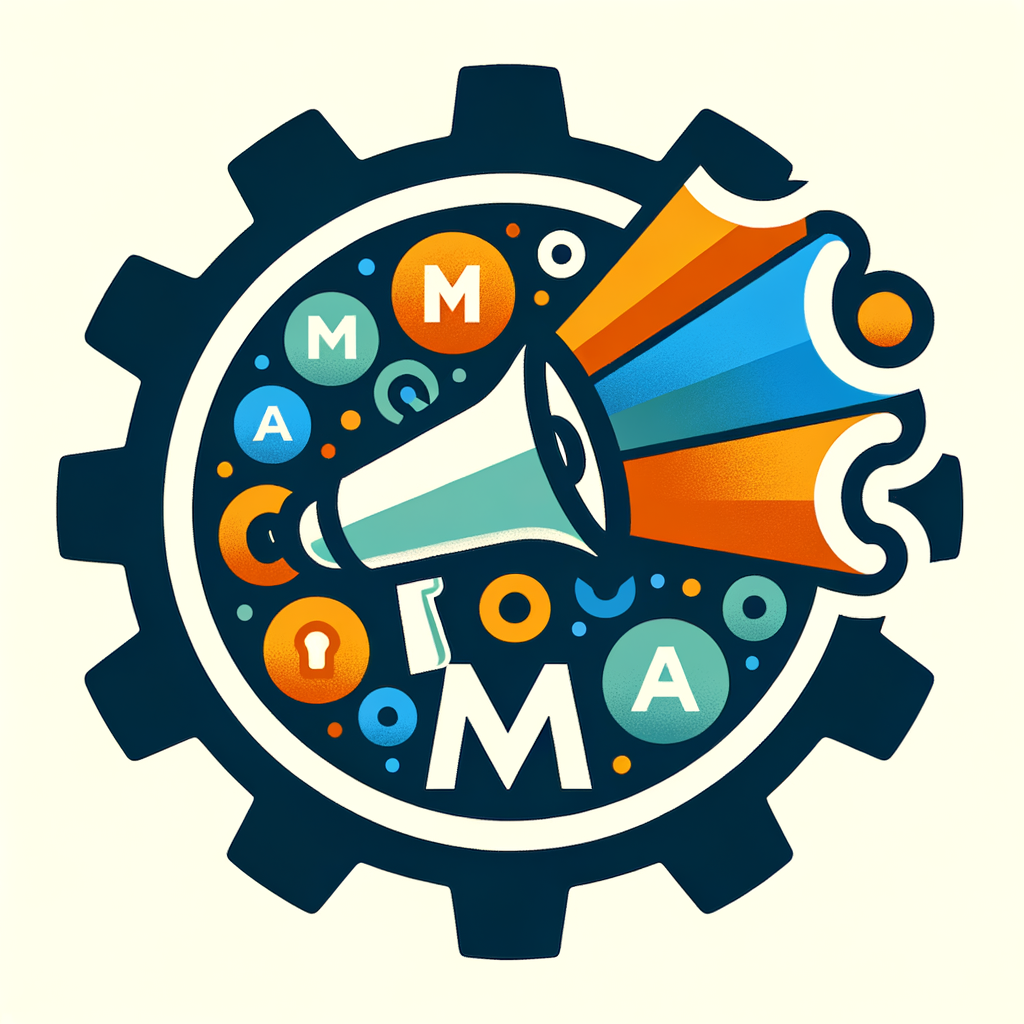Marketing automation refers to the use of software and technology to streamline and automate various marketing processes, such as lead generation, email marketing, social media campaigns, and customer relationship management (CRM). By integrating multiple types of marketing automation tools, businesses can create a comprehensive strategy that delivers a seamless and personalized experience for their customers across various touchpoints.
Are you struggling to manage multiple marketing channels and campaigns effectively? Do you find it challenging to deliver a consistent and personalized experience to your customers across different platforms? If so, integrating multiple types of marketing automation could be the solution you need.
Key Takeaways:
- Marketing automation helps streamline and automate various marketing processes, improving efficiency and effectiveness.
- Integrating multiple types of marketing automation tools allows businesses to create a comprehensive strategy that delivers a seamless and personalized customer experience.
- Common types of marketing automation include email marketing, lead management, social media marketing, content marketing, and analytics and reporting.
- Successful integration of marketing automation tools requires careful planning, data integration, and alignment with overall marketing and business goals.
Understanding Marketing Automation
Marketing automation is the process of using software and technology to automate and streamline various marketing tasks and processes. It helps businesses to efficiently manage and execute marketing campaigns, nurture leads, and analyze campaign performance. By automating repetitive tasks, marketing teams can save time and focus on more strategic initiatives.
Types of Marketing Automation
There are several types of marketing automation tools available, each designed to address specific marketing needs. Here are some common types:
Email Marketing Automation
Email marketing automation tools help businesses create, send, and track email campaigns. These tools allow for personalized email content, automated email sequences based on user behavior or triggers, and detailed analytics to measure the effectiveness of email campaigns.
Lead Management Automation
Lead management automation tools help businesses capture, qualify, and nurture leads through the sales funnel. These tools automate lead scoring, lead nurturing campaigns, and lead assignment to sales teams, ensuring that no leads fall through the cracks.
Social Media Marketing Automation
Social media marketing automation tools help businesses manage and automate their social media presence across multiple platforms. These tools allow for scheduling and publishing posts, monitoring social media conversations, and analyzing social media metrics.
Content Marketing Automation
Content marketing automation tools help businesses plan, create, and distribute content across various channels. These tools can automate content calendars, optimize content for search engines, and track content performance.
Analytics and Reporting Automation
Analytics and reporting automation tools provide businesses with comprehensive insights into their marketing campaigns’ performance. These tools gather data from various sources, generate reports, and provide visualizations to help marketers make data-driven decisions.
Integrating Multiple Types of Marketing Automation
While each type of marketing automation tool serves a specific purpose, integrating multiple types can create a comprehensive and cohesive marketing strategy. By combining the capabilities of different tools, businesses can achieve a seamless and personalized customer experience across various touchpoints.
For example, integrating email marketing automation with lead management automation can help businesses nurture leads more effectively by sending targeted and personalized email campaigns based on lead behavior and interactions. Similarly, integrating social media marketing automation with content marketing automation can help businesses promote and distribute their content more effectively across social media channels.
Benefits of Integrating Multiple Types of Marketing Automation
Integrating multiple types of marketing automation offers several benefits to businesses, including:
Improved Customer Experience
By integrating various marketing automation tools, businesses can deliver a consistent and personalized experience to their customers across different channels and touchpoints. This can lead to increased customer satisfaction, loyalty, and ultimately, higher conversion rates.
Increased Efficiency and Productivity
Marketing automation tools help streamline and automate repetitive tasks, freeing up time for marketing teams to focus on more strategic initiatives. By integrating multiple tools, businesses can further enhance their efficiency and productivity.
Better Data Integration and Insights
Integrating multiple marketing automation tools allows businesses to consolidate data from various sources, providing a comprehensive view of customer behavior and campaign performance. This enables data-driven decision-making and optimized marketing strategies.
Scalability and Flexibility
As businesses grow and their marketing needs evolve, integrating multiple marketing automation tools provides scalability and flexibility. Businesses can add or remove tools as needed, ensuring that their marketing strategy remains agile and adaptable.
Challenges of Integrating Multiple Types of Marketing Automation
While integrating multiple types of marketing automation offers numerous benefits, it also presents some challenges that businesses should be aware of:
Data Integration and Management
Integrating multiple marketing automation tools often requires integrating data from various sources. This can be a complex process, and businesses must ensure that data is accurately mapped and synchronized across different tools.
Technical Complexity
Integrating multiple marketing automation tools can be technically complex, especially if the tools were not designed to work together seamlessly. Businesses may need to invest in additional resources or seek the assistance of third-party integration services.
Change Management
Implementing and integrating multiple marketing automation tools often requires significant changes to existing processes and workflows. Businesses must ensure that their teams are properly trained and equipped to adapt to these changes.
Cost Considerations
Integrating multiple marketing automation tools can be costly, as businesses may need to purchase additional software licenses, hire specialized personnel, or invest in integration services. Businesses should carefully evaluate the costs and potential return on investment (ROI) before implementing an integrated marketing automation strategy.
Successful Integration Strategies
To successfully integrate multiple types of marketing automation, businesses should follow these strategies:
Clearly Define Goals and Objectives
Before integrating marketing automation tools, businesses should clearly define their marketing goals and objectives. This will help them identify the specific tools and integrations needed to achieve their desired outcomes.
Conduct a Thorough Needs Assessment
Businesses should conduct a thorough assessment of their marketing needs, processes, and existing tools. This will help them identify gaps and determine the most appropriate marketing automation tools to integrate.
Prioritize Data Integration and Management
Ensuring seamless data integration and management should be a top priority when integrating multiple marketing automation tools. Businesses should establish clear data governance policies and procedures to ensure data accuracy and consistency.
Align with Overall Marketing and Business Strategy
The integration of marketing automation tools should align with the overall marketing and business strategy. Businesses should ensure that the integrated tools support their broader goals and objectives.
Foster Cross-Functional Collaboration
Successful integration of marketing automation tools often requires collaboration across different departments, such as marketing, sales, and IT. Businesses should foster cross-functional collaboration and establish clear communication channels to ensure seamless integration and adoption.
Provide Adequate Training and Support
Integrating multiple marketing automation tools often requires significant changes to existing processes and workflows. Businesses should provide adequate training and support to their teams to ensure a smooth transition and effective utilization of the integrated tools.
Continuously Monitor and Optimize
Marketing automation is an ongoing process, and businesses should continuously monitor and optimize their integrated tools and strategies. Regular performance reviews, data analysis, and adjustments should be made to ensure that the integrated tools are delivering the desired results.
Integrating multiple types of marketing automation is a powerful strategy that can help businesses deliver a seamless and personalized customer experience, increase efficiency, and drive better results. However, successful integration requires careful planning, data management, and alignment with overall marketing and business goals. By following best practices and addressing potential challenges, businesses can unlock the full potential of an integrated marketing automation strategy.
Remember, integrating marketing automation tools is an ongoing process that requires continuous monitoring, optimization, and adaptation to changing market conditions and customer needs. Stay agile, embrace change, and never stop learning and improving your integrated marketing automation strategy.

